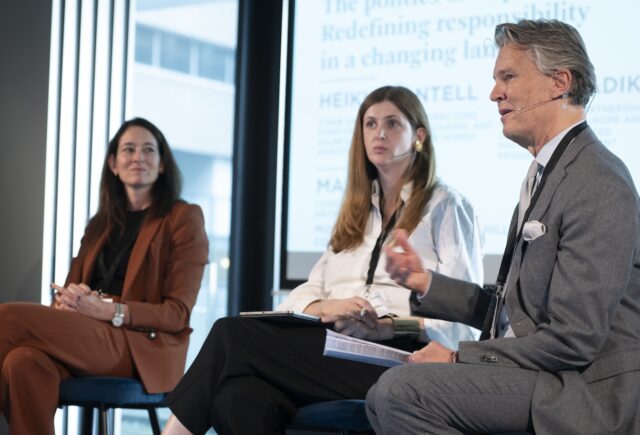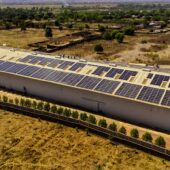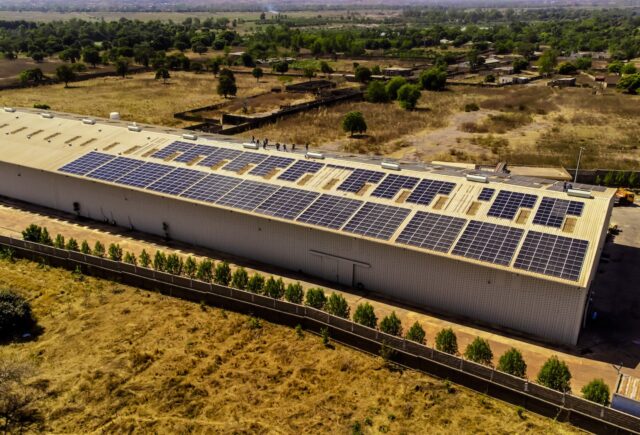The profound impact of COVID-19 has the potential to drive a lasting ‘reset’ of the world. How to align economic interests with justice and fairness has become “the question of our times”, according to the author.

In brief
- The question is not whether COVID has changed anything, but rather whether it has changed everything
- The scale of that change creates the potential for the ‘Great Reset’.
- “The worldwide rescue and recovery aid could serve as the spring feather of SRI in our post-pandemic Renaissance.”
- Government has set the direction of travel. Will private capital follow?
Julia Puaschunder would be a dream person to sit next to at a dinner party. A true polymath, she has opinions and insights about everything, and cites her own works seven times in just one page. She ponders “whether social media information has a different impact on corporate stock market performance” and considers “quantitative studies on temporal volatility, echo-chambers and framing online experiments”.
Some points ask more questions than they answer. “Anti-discrimination efforts may protect excellence. But the sphere of excellence per se needs to be redefined and pegged to an appreciation for diversity and inclusion of different opinions.” What is she thinking?
She asks: “With the planned post-COVID-19 bailouts representing more than 60% of the money ever issued in the history of the USA, should the finance float be pegged to an obligation to return to human well-being and promote the pursuit of sustainable growth?” There’s no doubting on this one, her answer is “yes.”
The impact of COVID-19
It’s hard to appreciate a painting’s meaning with your nose up against the canvas, and so as we step back a few paces, can we start to see the real importance of COVID?
“Overall, the COVID-19 global recession is estimated to be the deepest since World War II, with the largest fraction of economies experiencing declines in per capita output since 1870.” Drastic downturns for trade, human mobility and international service industries demanded unprecedented governmental intervention.
The author mentions how qualitative and quantitative stimulus, rescue and recovery aid packages “have surpassed all other programs of this type in human history”. The cost of saving the global economy is estimated to have been $834m per hour for 18 months, including almost $4trn rescue funds spent by the US Federal Reserve alone.
Moreover, Puaschunder highlights how the pandemic has heightened economic disparity between nations, industries and societal groups. Human behaviour has indeed changed remarkably, from increased digitalisation to the rise of “AI, robots and algorithms in the economy, which is expected to completely disrupt employment patterns”.
Surveying the unprecedentedly large rescue packages coupled with behavioural changes and abrupt shifts in consumption patterns, “one starts imagining the once-in-a-lifetime potential of COVID-19 for a lasting ‘reset’ of the world”, the author writes.
The Great Reset
So what is that? “The worldwide rescue and recovery aid could serve as the spring feather of SRI in our post-pandemic Renaissance.”
Now, the world has “the potential to benefit from an exacerbated strive for finance in line with societal needs and wants that embrace everyone”. The author describes the issue of how to align economic interest with justice and fairness “the question of our times”.
The author cites the US’s proposed Green New Deal and the European Green Deal (EGD) coupled with the European Sustainable Finance Taxonomy, all “large-scale endeavours with a long-term impact to make the world a more inclusive place”.
She reminds us this new enthusiasm is pushing on an open door. “In the wake of the 2008 World Financial Recession, corporate social misconduct and financial fraud have steered consumers and investors to increasingly pay attention to democracy and social responsibility within market systems. The renaissance of attention to responsibility as a prerequisite for the functioning of economic systems portrayed CSR and SRI as windows of opportunity to re-establish trust in fallible market systems.”
The author surveys the many good things that have happened already, particularly around climate change. “Green bonds have become fundamental pillars for raising funds for a transition to renewable energy. Solar power and wind turbines, eco-friendly infrastructure and more research and development in clean energy and green technology are all investments for averting climate change funded by bonds.”
And she has a wish list of how it could go further that will be all too familiar to impact investors. More transparency, better information, better stakeholder management, more accountability, and standardisation of impact measurement.
But her main argument is that governments post-COVID are providing the direction of travel. Will private capital follow this lead?
Looking to the future, I have the feeling perhaps our nose is still too close to the canvas. As Puaschunder says: “Monitoring and evaluation can currently only give a short-term assessment of the performance of projects, institutions and programs by governments, international organizations, NGOs as well as social media campaigns.”
Plenty of food for thought here.





